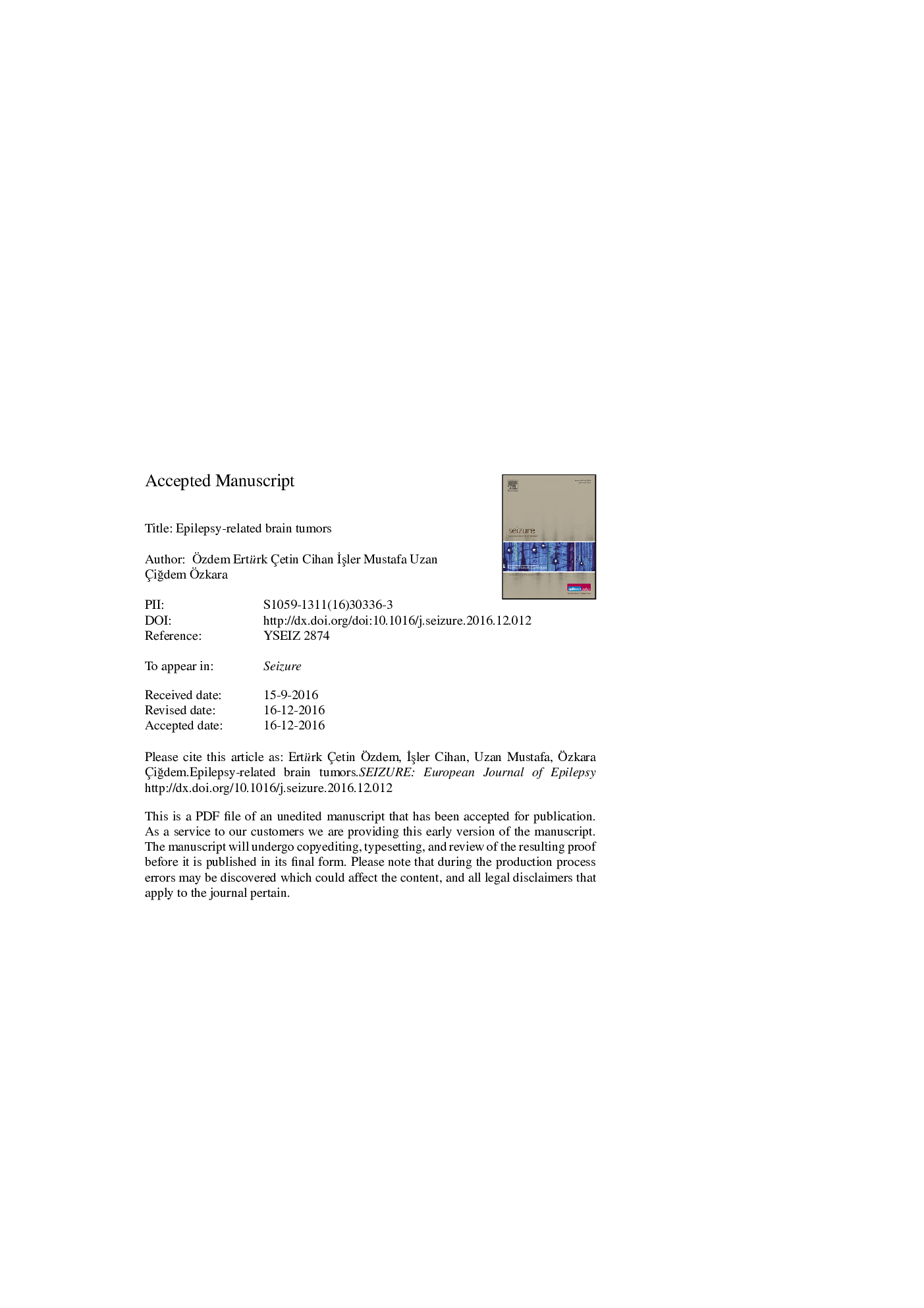| Article ID | Journal | Published Year | Pages | File Type |
|---|---|---|---|---|
| 4935522 | Seizure | 2017 | 18 Pages |
Abstract
Seizures are among the most common presentations of brain tumors. Several tumor types can cause seizures in varying rates; neuroglial tumors and the gliomas are the most common ones. Brain tumors are the second most common cause of focal intractable epilepsy in epilepsy surgery series, with the highest frequency being dysembryoplastic neuroepithelial tumors and gangliogliomas. Seizure management is an important part of the treatment of patients with brain tumors. This review discusses clinical features and management of seizures in patients with brain tumors, including, neuroglial tumors, gliomas, meningioma and metastases; with the help of recent literature data. Tumor-related seizures are focal seizures with or without secondary generalization. Seizures may occur either as initial symptom or during the course of the disease. Brain tumors related epilepsy tends to be resistant to antiepileptic drugs and treatment of tumor is main step also for the seizure treatment. Early surgery and extent of the tumor removal are important factors for achieving seizure freedom particularly in neuroglial tumors and low grade gliomas. During selection of the appropriate antiepileptic drug, the general approach to partial epilepsies can be followed. There are several factors influencing epileptogenesis in brain tumor-related epilepsy which also explains clinical heterogeneity of epilepsy among tumor types. Identification of molecular markers may guide future therapeutic approaches and further studies are needed to prove antitumor effects of different antiepileptic drugs.
Related Topics
Life Sciences
Neuroscience
Behavioral Neuroscience
Authors
Ãzdem Ertürk Ãetin, Cihan Ä°Åler, Mustafa Uzan, ÃiÄdem Ãzkara,
